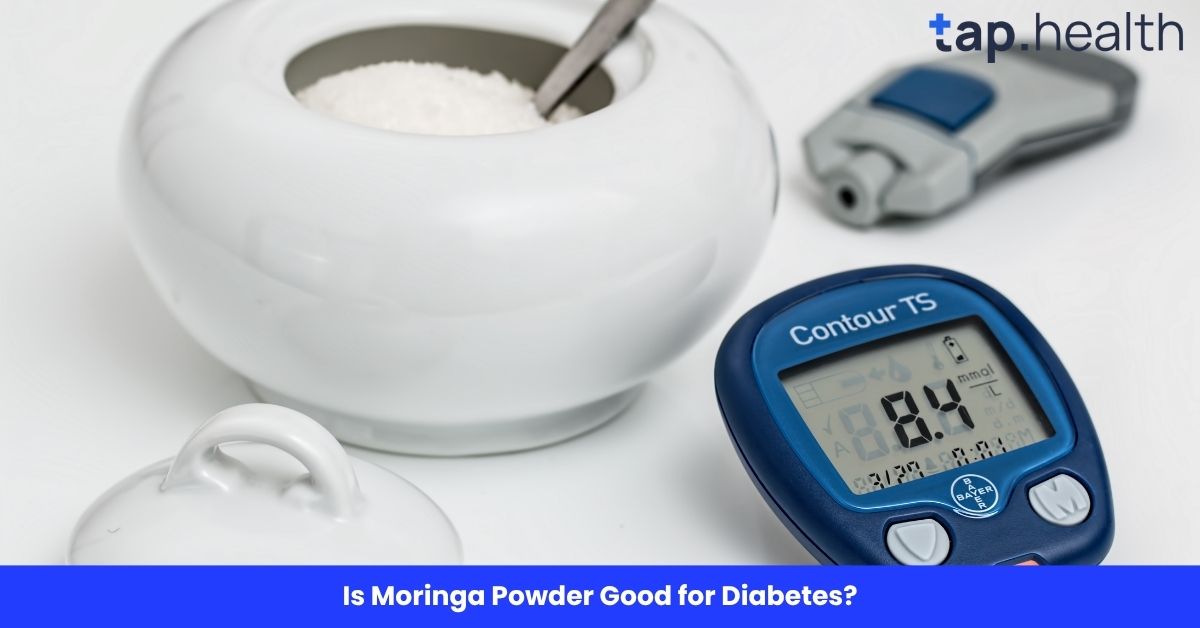Diabetes is a condition where managing blood sugar levels is key to staying healthy. One of the most important aspects of controlling diabetes is diet, especially when it comes to sugar. But with so many types of sugar and sweeteners available, which sugar is best for diabetics? In this guide, we will explore various sugar options, including natural sweeteners and artificial ones, and help you make the best choice for your diabetes management.
Understanding Diabetes and the Role of Sugar
Before we dive into which sugars are best for diabetics, let’s first understand how sugar affects blood sugar levels and why it’s important to choose the right type of sweetener.
What is Diabetes?
Diabetes is a condition where the body has trouble processing glucose (sugar). There are two main types:
- Type 1 Diabetes: An autoimmune disease where the body attacks the insulin-producing cells in the pancreas, leading to high blood sugar levels.
- Type 2 Diabetes: A condition where the body becomes resistant to insulin, causing higher-than-normal blood sugar levels.
For both types, controlling blood sugar levels is essential to prevent complications like heart disease, kidney damage, and nerve issues. This is where the right type of sugar or sweetener becomes crucial.
The Role of Sugar in Blood Sugar Control
When a diabetic person consumes sugar, it enters the bloodstream and causes a rise in blood glucose levels. People with diabetes struggle to regulate these levels due to issues with insulin production or sensitivity. This is why choosing the right sugar or sweetener becomes crucial for maintaining normal blood sugar levels.
Some sugars cause rapid spikes in blood glucose, while others are absorbed more slowly, leading to a gradual increase in blood sugar. Understanding these differences is key to choosing the right type of sugar for diabetics.
Which Sugar is Best for Diabetics?
Now that we understand the role of sugar in managing diabetes, let’s explore the best sugar options for diabetics. We will look at various types of sugar and sweeteners that can be safely consumed, along with their pros and cons.
1. Stevia
Stevia is a natural sweetener derived from the leaves of the Stevia rebaudiana plant. It is one of the best sugar substitutes for diabetics because it contains no calories and does not affect blood sugar levels.
Benefits of Stevia for Diabetics:
- Zero Calories: Stevia contains no calories, making it a great option for people who are also trying to manage their weight.
- No Blood Sugar Spike: Unlike regular sugar, stevia does not raise blood glucose levels, making it safe for diabetics.
- Natural Source: As a plant-based sweetener, stevia is a natural alternative to artificial sugars.
How to Use Stevia:
Stevia can be used in beverages like tea, coffee, and smoothies. It can also be used in baking, but because it’s much sweeter than sugar, only small amounts are needed.
2. Monk Fruit Sweetener
Monk fruit sweetener, also known as Luo Han Guo, is another natural sugar alternative derived from the monk fruit. It has been used in traditional Chinese medicine for centuries and is now becoming popular as a sugar substitute for diabetics.
Benefits of Monk Fruit Sweetener:
- Zero Glycemic Index: Monk fruit sweetener has a glycemic index of zero, meaning it does not affect blood sugar levels.
- Natural Sweetener: It is a natural product with no additives or chemicals, making it safe for diabetics.
- Antioxidant Properties: Monk fruit contains antioxidants, which can help reduce inflammation and protect cells from damage.
How to Use Monk Fruit Sweetener:
Monk fruit sweetener is available in liquid, powder, and granulated forms. It can be used in drinks, desserts, and even baked goods, though it may be sweeter than regular sugar, so adjust the amount accordingly.
3. Erythritol
Erythritol is a sugar alcohol that is naturally found in some fruits and fermented foods. It has become a popular choice for diabetics because it contains only a small number of calories and does not cause a spike in blood glucose levels.
Benefits of Erythritol for Diabetics:
- Low Glycemic Index: Erythritol has a glycemic index of zero, meaning it does not raise blood sugar levels.
- Low in Calories: It contains 95% fewer calories than regular sugar, making it a good choice for weight management.
- Tooth-Friendly: Erythritol does not contribute to tooth decay, unlike regular sugar.
How to Use Erythritol:
Erythritol can be used in cooking and baking. It behaves similarly to sugar, making it easy to substitute in most recipes. However, like other sugar alcohols, excessive consumption may cause digestive discomfort.
4. Xylitol
Xylitol is another sugar alcohol that is often used as a sugar substitute. It is commonly found in sugar-free gum and candies, and it has a sweetness level similar to sugar.
Benefits of Xylitol for Diabetics:
- Low Glycemic Index: Xylitol has a low glycemic index, making it a safe option for people with diabetes.
- Dental Health: Unlike regular sugar, xylitol can help reduce the risk of cavities and tooth decay.
- Fewer Calories: Xylitol contains fewer calories than sugar, helping with weight management.
How to Use Xylitol:
Xylitol can be used in beverages, baking, and desserts. However, it is important to note that large amounts of xylitol can cause digestive issues like bloating and gas, so it should be used in moderation.
5. Coconut Sugar
Coconut sugar, made from the sap of coconut palm trees, has become a popular alternative to traditional sugar. It is often marketed as a healthier option because it contains trace minerals and has a lower glycemic index than regular sugar.
Benefits of Coconut Sugar for Diabetics:
- Lower Glycemic Index: Coconut sugar has a lower glycemic index compared to regular sugar, meaning it causes a slower rise in blood glucose.
- Contains Nutrients: It contains small amounts of iron, zinc, calcium, and potassium, which can contribute to a balanced diet.
- Natural Source: Coconut sugar is less processed than white sugar, making it a more natural option.
How to Use Coconut Sugar:
Coconut sugar can be used in a one-to-one ratio as a replacement for regular sugar in most recipes. It’s best used in baking, cooking, or in beverages like coffee.
6. Agave Nectar
Agave nectar is a sweetener derived from the agave plant. While it is lower in glycemic index compared to regular sugar, it is often debated for its high fructose content.
Benefits of Agave Nectar:
- Low Glycemic Index: Agave nectar has a low glycemic index, meaning it causes a slower rise in blood sugar levels.
- Natural Sweetener: It is a natural product that is less processed than refined sugars.
- Sweetness Level: Agave is sweeter than sugar, meaning less is needed to achieve the desired sweetness.
How to Use Agave Nectar:
Agave nectar can be used in drinks, smoothies, or as a sweetener in baking. However, it is important to note that it is high in fructose, which may contribute to liver issues if consumed excessively.
Which Sugar Should Diabetics Avoid?
While there are several good sugar substitutes for diabetics, there are also types of sugar and sweeteners that should be avoided due to their effect on blood sugar levels.
1. Regular White Sugar (Sucrose)
Regular white sugar is made from either sugar cane or sugar beets and is the most common type of sugar. It has a high glycemic index, which means it rapidly raises blood sugar levels.
- Avoid: White sugar causes a rapid increase in blood glucose levels, making it unsuitable for diabetics.
2. High-Fructose Corn Syrup (HFCS)
High-fructose corn syrup is commonly found in sugary beverages and processed foods. It is made from corn starch and contains a high amount of fructose, which can lead to insulin resistance and obesity.
- Avoid: HFCS should be avoided as it has been linked to various health problems, including insulin resistance, which is a major concern for people with diabetes.
3. Maple Syrup
While maple syrup is a natural sweetener, it has a high glycemic index and can raise blood sugar levels quickly. Therefore, it is not the best option for diabetics.
- Avoid: Use maple syrup sparingly or avoid it altogether if you are trying to control blood sugar.
Tips for Managing Sugar Intake with Diabetes
Managing sugar intake is crucial for diabetics. Here are some helpful tips to keep in mind:
- Choose Natural Sweeteners: Opt for natural, low glycemic index sweeteners like stevia, monk fruit, or erythritol to prevent blood sugar spikes.
- Read Labels Carefully: Always check the ingredient list on packaged foods to avoid added sugars and high-fructose corn syrup.
- Control Portions: Even with low glycemic sweeteners, moderation is key. Avoid consuming large amounts of any sweetener.
- Monitor Blood Sugar Levels: Regularly check your blood sugar to see how different sweeteners affect your levels.
Real-Life Scenario
Imagine Rina, who has type 2 diabetes. She loves her morning tea but used to add two teaspoons of white sugar daily. Her doctor suggested switching to stevia. Within weeks, her blood sugar readings became more stable, and she didn’t feel deprived of sweetness. This small change made a big difference in her daily glucose control.
Expert Contribution
According to endocrinologists and dietitians, replacing refined sugar with natural, low-calorie sweeteners can significantly reduce glucose spikes.
Experts emphasize:
- Always check food labels for hidden sugars like dextrose, maltose, or corn syrup.
- Even natural sweeteners should be used in moderation, as overconsumption may affect gut health or appetite.
- The American Diabetes Association (ADA) recognizes stevia, monk fruit, and erythritol as safe options for diabetics.
Recommendations Grounded in Proven Research and Facts
- Stevia and monk fruit are the top choices for diabetics due to zero calories and minimal glucose impact.
- Avoid artificial sweeteners like aspartame or saccharin if you experience side effects or sensitivity.
- Monitor your body’s response—even natural sweeteners can affect individuals differently.
- Combine sweeteners with fiber-rich foods (like oats or yogurt) to slow sugar absorption.
- Always consult a healthcare provider before making long-term changes in your diet.
How Tap Health Can Help You Manage Diabetes Better
Managing diabetes can feel overwhelming, but Tap Health makes it simple and personalized. This smart, AI-powered app is designed to support you every step of the way — from tracking your meals to monitoring your blood sugar levels.
Here’s how Tap Health helps:
- Smart Meal Tracking: Just take a photo of your meal, and Tap Health instantly estimates your carbs and calories. It even suggests healthier options when needed.
- Personalized Insights: The app learns your habits and provides daily tips to help you stay within your blood sugar targets.
- AI Coaching 24/7: Get instant guidance on diet, exercise, sleep, and lifestyle anytime you need it.
- Blood Sugar Monitoring: Log your glucose readings easily and view progress charts to understand your patterns.
- Medication & Reminder Support: Never miss a dose again with automatic reminders and medication tracking.
- Easy-to-Follow Workouts: Access fitness routines tailored to your age, health condition, and fitness goals.
Tap Health isn’t just an app — it’s your personal diabetes care partner, helping you live a healthier, more confident life.
FAQs About Sugar for Diabetics
1. Is stevia safe for diabetics?
Yes, stevia is a safe and effective sugar substitute for diabetics. It has zero calories and does not raise blood sugar levels.
2. Can diabetics eat coconut sugar?
Coconut sugar has a lower glycemic index than regular sugar, making it a better choice for diabetics. However, it should still be consumed in moderation.
3. Is agave nectar good for diabetics?
Agave nectar has a low glycemic index but is high in fructose, which can contribute to liver problems if consumed in excess. Use it sparingly.
4. Can diabetics eat honey?
Honey contains natural sugars and has a higher glycemic index than some alternatives like stevia or monk fruit. It should be consumed in small amounts if at all.
5. Which sweeteners are best for baking?
Stevia, monk fruit, and erythritol are great sugar substitutes for baking, as they do not spike blood sugar levels and can replace sugar in most recipes.
Conclusion: Which Sugar is Best for Diabetics?
When it comes to choosing the best sugar for diabetics, natural sweeteners like stevia, monk fruit, and erythritol are excellent choices. These sweeteners do not cause a spike in blood sugar and are much safer for managing diabetes. On the other hand, regular sugar, high-fructose corn syrup, and maple syrup should be avoided due to their negative impact on blood sugar levels.
By choosing the right sweetener and using it in moderation, diabetics can satisfy their sweet tooth without compromising their health. Always consult with a healthcare provider to tailor your dietary choices to your specific needs and condition.


